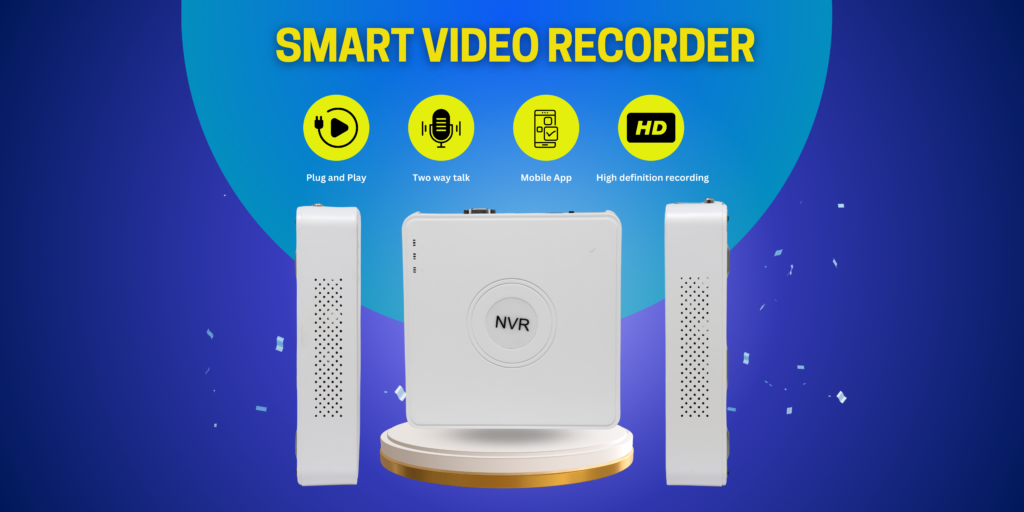“Revolutionizing Security: How NVRs Are Shaping the Future of Surveillance”

NVRs Explained: The Backbone of Modern Surveillance Systems
In an era where security concerns are at an all-time high, Network Video Recorders (NVRs) have emerged as a pivotal technology for effective surveillance. This blog delves into the role of NVRs, their advantages, and how they are redefining safety for homes, businesses, and public spaces.
What is an NVR?
An NVR, or Network Video Recorder, is a device that records video footage from IP cameras over a network. Unlike traditional DVRs, which are limited to analog cameras, NVRs work with digital cameras, offering seamless connectivity and high-definition video recording.
Key Features of NVRs
- Crystal Clear Video Quality
NVRs support resolutions up to 4K, delivering unmatched clarity and detail. - Remote Monitoring
Access live footage or recorded videos via smartphones, tablets, or computers from anywhere in the world. - Scalability
Easily add more cameras to your system as your security needs grow. - Intelligent Analytics
Many NVRs are equipped with AI features such as facial recognition, motion detection, and object tracking. - Integrated Storage Options
Choose from local hard drives, network-attached storage (NAS), or cloud-based storage to ensure data safety.
Benefits of Using NVRs in Security Systems
- Simplified Installation: Use Power over Ethernet (PoE) technology to reduce cable clutter.
- Flexible Placement: IP cameras can be installed at greater distances without compromising video quality.
- Enhanced Security: Encrypted data transmission ensures your recordings remain secure.
- Real-Time Alerts: Receive instant notifications for suspicious activities, enabling faster response times.
Top Use Cases for NVRs
- Residential Security: Protect your home with 24/7 surveillance and remote access.
- Retail Monitoring: Prevent theft and monitor customer behavior.
- Industrial Safety: Supervise machinery, equipment, and employees.
- Smart Cities: NVRs play a critical role in urban security and traffic management systems.
How to Choose the Right NVR
- Number of Channels: Determine how many cameras you plan to connect.
- Storage Capacity: Opt for sufficient storage to retain footage for your desired duration.
- Camera Compatibility: Verify compatibility with your existing or preferred IP cameras.
- Future-Proofing: Invest in an NVR that supports advanced features like AI and 4K recording.
NVR vs DVR: Which is Better?
| Feature | DVR | NVR |
|---|---|---|
| Camera Compatibility | Analog Cameras | IP Cameras |
| Installation | Complex (Coaxial) | Simple (Ethernet/PoE) |
| Video Quality | Standard Definition | High Definition (HD/4K) |
| Advanced Features | Limited | AI Integration, Analytics |
NVRs outshine DVRs in flexibility, quality, and advanced functionalities, making them ideal for modern setups.
Conclusion
Network Video Recorders are transforming security landscapes with their advanced features, ease of use, and ability to integrate seamlessly with modern technologies. Whether for personal use or large-scale applications, NVRs are the future of surveillance.
Invest in an NVR today to experience a smarter, safer tomorrow.
